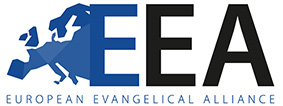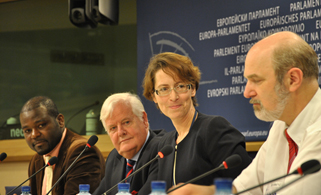Driebergen, 14 July 2016
The EEA is very concerned about the new Anti-Terror-Legislation coming into force 20 July 2017 in Russia. Potentially this new legislation can affect Evangelicals in Russia very much should it be strictly applied.
The question is who is targeted by this new legislation. Evangelicals are people working for the common good in society. This is also true for Russian Evangelicals!
“Russian Evangelicals are not problematic and radicalised citizens and they should not be treated that way. The Good News of the Gospel have a positive effect on society and therefore there should be room to share these Good News freely,” says Thomas Bucher, the General Secretary of the European Evangelical Alliance.
Freedom of Religion is a high good and it should not be restricted by legislation or in the way legislation is applied.
However, it is true that there are various aspects to be taken into account as laid out below.
New Legislation and Evangelical Churches Response
Despite massive lobbying by Russian Protestants, President Vladimir Putin signed off on a package of anti-terror legislation usually called the “Yarovaya Laws” on 7 July. Highly significant for evangelicals are stipulations forbidding evangelistic efforts in public areas and restricting the practice of religion to officially-designated, registered places of worship.
Concerns were audible but hardly apocalyptic during Protestant worship services in Moscow on 10 July. There are dozens of Moscow congregations forced to meet in rented hotel space, it remains an open issue as to whether this too will remain tolerated practice.
Congregations were warned against succumbing to an atmosphere of panic and hysteria. “Keep cool and carry on”, or patiently await further developments, was the essence of many Protestant statements on 10 July as most questions regarding the implantation of the new laws remain unclear.
Lessons from the Past
Russian church policy continues to move simultaneously in multiple and opposing directions. Only a few weeks ago, state-funded and heavily promoted Baptist events commemorating the 140th anniversary of the Russian Synodal Bible drew to a close. One offshoot of the festivities is a state-approved project to distribute Bibles to all the inmates of Russian penal institutions.
Russian evangelicals have many decades of experience in dealing with a non-sympathetic state. Even in the present post-Soviet era there have been frequent run-ins with the state since the mid-1990 with various effects on the churches.
Present Concerns
There are over a thousand Pentecostal house groups meeting alone in Moscow. Yet, sadly, a complex legislation of repression is now in place and could be put into practice if ever the need arises. That “need” would arise as a result of greatly-heightened East-West tensions – tensions which are also very much contingent upon Western conduct as perceived in Russia.
Differences between East and West
It would also be inaccurate to claim that Eastern Europe’s evangelicals share the conviction on far-reaching religious freedom of the West. Russia’s repression of Scientologists, Jehovah’s Witnesses and Mormons finds quiet support in most evangelical circles.
One should also remember that evangelicals are not the primary target of this “anti-terrorist” legislation. Russia has roughly 20 million Muslim citizens. If one includes the Muslims from the neighbouring, once-Soviet republics to the south, one arrives at a figure approaching 50 million Muslims. Depending one how one counts, Russia has no more than a million Protestants.
Religious Considerations
How strongly has the Moscow Patriarchy been pushing this new anti-terrorist legislation? The legislation is undoubtedly a victory for the Moscow Patriarchy. But it is apparently not a total victory: Further legislation signed into law by Putin made corporal punishment administered to children illegal – a position at odds with the Patriarchy.
Reactions from the West
Developments such as these lend themselves to over-dramatisation by politicians and Christian workers and organisations from the West. The whole situation is of course seen in the present demonstrations of power between the NATO and Russia. There are for sure fears on the side of Russia’s neighbours but there are also fears on the side of Russia. One should take these fears serious but on neither side one should join the alarmist camp.
Call for Caution, Prayer and Support
The EEA calls on the Russian Government to respect freedom of religion, freedom of believes, freedom of speech and freedom of assembly as it considers the need to keep its country safe. And the EEA calls on Evangelicals to pray for the Russian government to get this balance right.
The EEA calls for prayer for the present situation. There is a big need for peacemakers and bridge builders.
The EEA asks Western organisations to be sensitive towards their brothers and sisters in Russia carefully checking what they really need and not come with culturally biased conclusions.
Evangelicals should connect with each other across all national borders. A spirit of “expecting the best” from each other should be fostered.
The EEA asks brothers and sisters in Russia to also accept differences in the Western Evangelical setting and not to jump to culturally biased conclusions either.
The EEA calls Christians all over Europe to pray and work for peace within their society including their governments and be bold in the living out of the Gospel of Hope.






